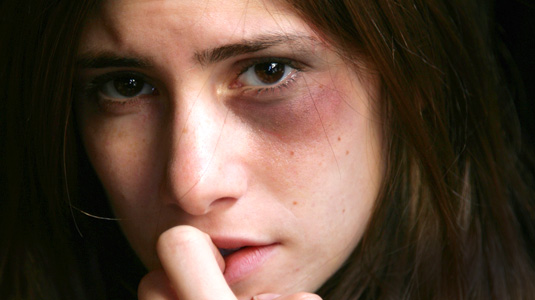Addiction and Domestic Violence
According to The U.S. Department of Justice, 61% of domestic violence offenders also have substance abuse problems.
Felicia thought she had found the love of her life but instead she found herself in what seemed to be her worst nightmare. For years the mother of one lived in fear and anxiety that the next breath she took was going to be her last.

While the man Felicia married seemed to be caring and charming, she soon discovered he had a dark side—he had been hiding a drug addiction from her, leading to controlling and violent behavior that isolated her from her friends and family.
At first Felicia chose to stand by her husband when he promised to stop, but as his drug abuse continued so did the violence and Felicia was forced to endure brutal beatings, stalking and harassment.
Constantly living in fear, the abuse only ended when a judge sentenced her abuser to two years in jail.
Women who have been abused are fifteen times more likely to abuse alcohol and nine times more likely to abuse drugs than women who have not been abused.
– National Collation against Domestic Violence
Domestic violence and substance abuse are issues that can affect anyone regardless of race, age, gender, socioeconomic status, religion, etc.
While it is frequently indicated that perpetrators in domestic violence studies have a high level of alcohol and drug abuse, domestic violence also increases the probability that victims will use alcohol and drugs to cope.
However, drug and alcohol addiction don’t necessarily cause domestic violence, and vice versa, but there is a very distinct correlation between the two, often co-occurring and exacerbating each other. Meaning:
- Abusers believe it is in their right to exert power and control over their partners and while substance abuse may not cause a person to feel this way it does have the potential to greatly increase the risk that he/she will assault his/her partner.
- The drug or alcohol abuse is oftentimes blamed as the excuse abusers use to justify their behavior. Such as “The cocaine makes me do it.”
- Abusers may attempt to force their partner to abuse drugs or alcohol as the victim’s sobriety may threaten the abuser’s power and control. Additionally, victims may also be encouraged to engage in drug or alcohol abuse to “please” their abuser.
- Victims who are abusing drugs and/or alcohol may not be able to accurately assess their own level of danger, their ability to defend themselves, and their ability to safely plan.
- Victims of domestic violence may turn to abusing drugs or alcohol as a way to self-medicate and cope with the traumatic abuse.
The high level as to which addiction and domestic violence can intertwine makes it extremely important for both issues are treated in order to reach long-term recovery. If you or a loved one is suffering from addiction or domestic violence, or both, it is important to recognize how and why you may be suffering and seek proper help. Don’t hesitate to call us today.
Article Categories
- 12 Steps
- Addiction in the Family
- Addiction Infographics
- Alcohol Addiction
- Articles
- Drug Addictions
- Drug Rehab Center News
- Helpful Articles
- Holidays & Substance Abuse
- Mental Health & Addiction
- Real Life Addiction Stories
- Recovery Testimonials
- Relapse Prevention
- Substance Abuse Prevention
